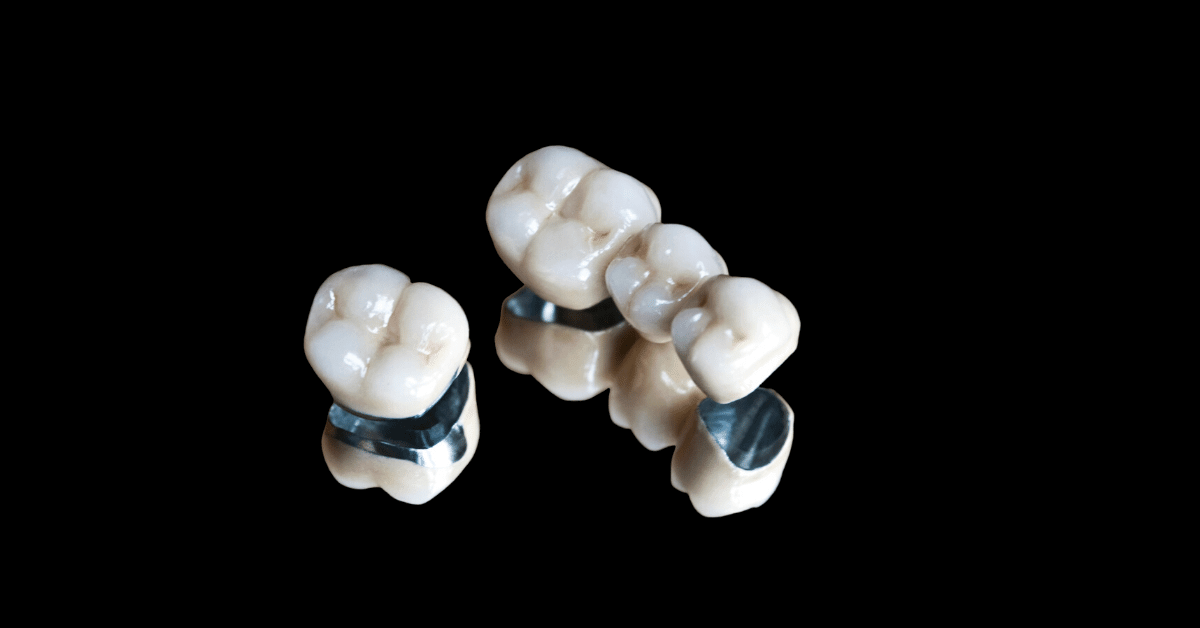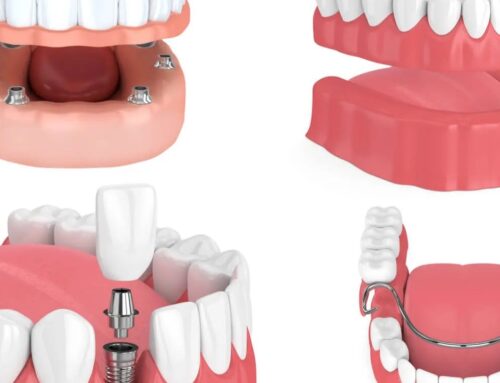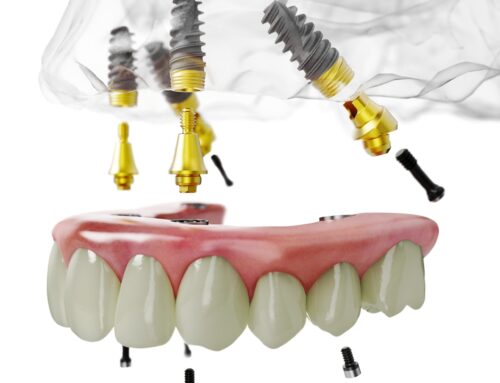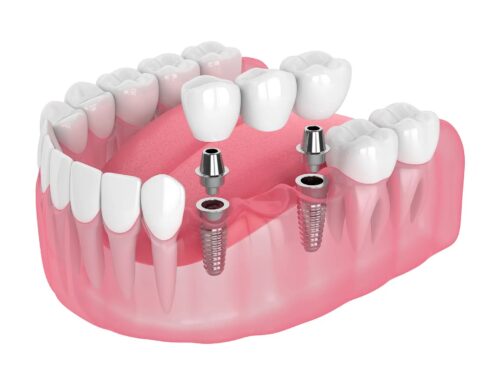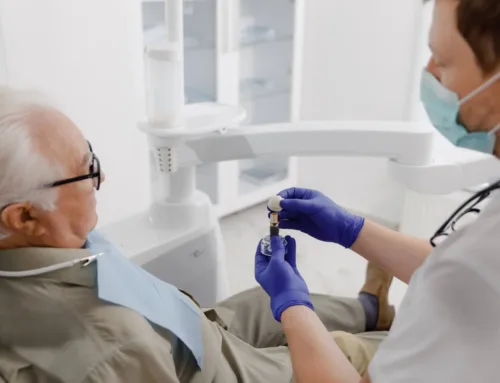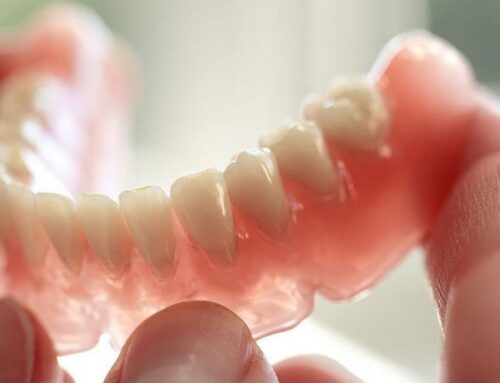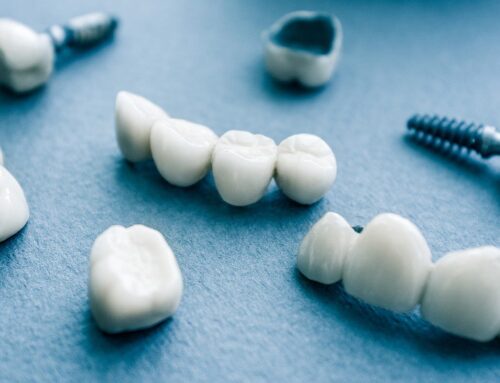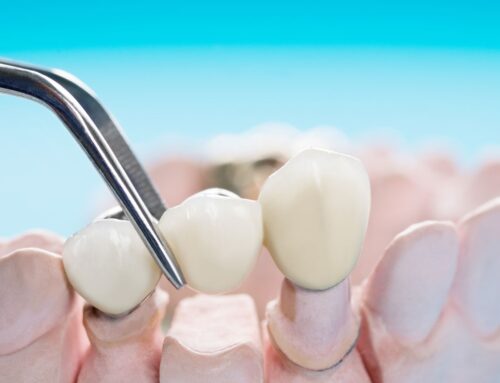Replacing Old Dental Crowns & Bridges with Dental Implants
Patients who have had previous dental work involving a dental bridge or dental crown may find themselves at a point where these repairs may need attention, and might even need to be replaced. In cases like this, it’s important to consider all the available options, as there are advantages and benefits that could be had by choosing to proceed with a dental implant instead.
When faced with the problem of lost or broken teeth, it’s important to get the right dental care in order to prevent future issues from developing. Situations such as chipped teeth, cracked teeth, large cavities, and lost teeth must be dealt with promptly to maintain proper mouth function. Failure to get restorative dental treatment for these types of problems can lead to a wide range of other health issues. Fortunately, modern dental procedures make it easier than ever to treat damaged, broken, or missing teeth and help keep their smiles looking great.
Just like we put the effort into taking care of our natural teeth to keep them healthy and strong, we also need to care for repaired teeth in the same way. At each of your regular check-ups, your dentist will closely inspect any previous dental work that you’ve had done to verify it’s integrity and ensure the repair is in good condition. However, there are sometimes where a previous dental repair becomes worn or damaged, and may need to be refurbished or replaced.
When this occurs, your dentist may choose to simply perform a repeat of the previous procedure. However, sometimes an alternate approach could prove to be a more effective solution. For patients with dental crowns or dental bridges in need of repair or replacement, a dental implant might be recommended. To understand why, it’s important to first clarify how dental bridges and crowns work, and why someone might find themselves in a situation where a crown or bridge would need to be replaced.
What Are Dental Crowns and Dental Bridges?
Dental crowns are used to repair teeth that have become chipped, cracked, or decayed on the upper visible portion of the tooth. Provided the core of the tooth and the roots are still healthy and in good condition, the tooth would not need to be extracted. Instead, the damaged area of the tooth will be removed and the remaining outer portion will be shaped and tapered smooth. The remaining natural tooth will be used as a base to which an artificial tooth crown is affixed. Using an ultra-strong dental adhesive, the artificial crown is attached and bonded, providing the patient with a natural-looking repair that is virtually indistinguishable from their other natural teeth.
Dental bridges are used to address the problem of a single lost tooth. On either side of the gap where the missing tooth was, the adjacent teeth will be shaped and tapered in a similar fashion to the way teeth are prepared to accept a dental crown. This is because a dental bridge is mounted much like a dental crown, only instead of being mounted to a single tooth, it is mounted to the adjacent teeth on each side of the gap. The bridge itself is crafted to appear like three individual teeth in a row, with the middle section of the bridge taking up the space where the missing tooth was located.
How Long Do Dental Bridges and Crowns Last?
Advanced materials and high-strength dental adhesives mean that dental crowns and dental bridges are very durable and provide an effective solution for patients for many years. The average lifespan of a dental crown or dental bridge is about 10 years. However, there are cases where patients have had the same dental crown or bridge for 15 years or more.
The longevity of a dental crown or dental bridge is connected to several different factors. First, dental hygiene is perhaps the most direct influencing factor to how many years a bridge or crown will last. Keeping up with the recommended dental care routine of brushing, flossing, mouthwashes, and regular dentist visits will help ensure you get the maximum number of years from a dental crown or bridge. Accidental impacts can cause damage to bridges and crowns as well, just as impacts would damage natural teeth. The decay and formation of cavities on the supporting teeth of the crown or bridge can also cause them to weaken and shorten the lifespan of the dental repair.
In the event that a person finds themselves in need of a repair or replacement of a dental crown or bridge, the dentist will conduct a thorough examination of the teeth and surrounding area to determine the best course of action. If it is determined that the teeth supporting the existing crown or bridge are no longer sufficient in health or structural integrity to support a new replacement, it may be suggested that moving forward with a dental implant would provide the optimum outcome.
What Is a Dental Implant?
Instead of replacing only the upper portion of the tooth like a dental crown does, or filling only the visible gap of a missing tooth, dental implants are complete replacement teeth that are embedded directly into the jawbone. Dental implants consist of two main components; the lower anchor post which is made from composite titanium materials, and the upper crown which is made from advanced dental porcelain or ceramic and colour-matched to the patient’s own tooth shade.
When a tooth gets knocked out, or is determined to be too damaged or decayed to be appropriately repaired and is extracted, the empty space where the tooth was starts to lead to other dental health problems. Missing teeth can make it more difficult to chew, potentially reducing the nutritional value of the patient’s diet. Lost teeth can also affect speech patterns, leading to reduced self-confidence and affecting a person’s overall sense of well-being.
In addition to these negative effects, lost teeth can also lead to the loss of bone density in the surrounding jawbone where the tooth was located. Throughout our daily lives, the natural pressure exerted by our teeth on our jawbone works to stimulate the area and generate an increase in the strength and density of the bone material. When teeth are missing this pressure lessens, thereby lessening the stimulating effects and reducing the strengthening process within the jawbone.
With a dental implant, the base of the replacement tooth is fused directly with the jawbone and functions in an identical manner to the root of a natural tooth, exerting the same stimulating pressure in the jaw and maintaining bone density over time. Dental implants provide a secure, long-term solution to the problem of lost or damaged teeth.
How Long Do Dental Implants Last?
Dental implants last for an extremely long time. The implant base embedded in the jaw can last for more than 25 years, while the upper visible portion of the replacement tooth can last for an average of 10-15 years or more. Of course, this is largely determined by lifestyle factors and how diligent the patient is with their dental health care.
As with any restorative dental work, it’s important to keep up with regular dental care habits such as brushing and flossing, as well as sticking to the recommended schedule of dental appointments. This will help ensure maximum longevity out of the dental implant and optimum dental health.
When to Take Action to Replace an Old Dental Bridge or Crown with Dental Implants
Knowing exactly when to replace an aging dental crown or dental bridge with a new dental implant isn’t always easy. There are several questions that must be answered before a decision can be made one way or the other. The health of the patient’s jawbone will need to be evaluated using physical examinations, and up-to-date dental x-rays will be obtained and analyzed. After carefully considering all the information available on the health of the patient’s jaw and the condition of the existing natural teeth on which the crown or bridge sits, it will be decided whether it would be in the best interest of the patient to move to a dental implant solution.
If you are curious about whether a dental implant is the right choice to replace an existing crown or bridge in your mouth, the first step in the process is to book an appointment for an evaluation and discussion. The team here at Georgian Dental will gladly arrange for your next visit and have an in-depth conversation with you about your available options, and what you can expect from the procedure. We’re here to provide you with complete clarity on the pros and cons of each approach as they relate specifically to your state of dental health. It’s our job to help you keep your smile in style with the dental care treatments and procedures that are best for you. Get in touch with us today, and let’s start the conversation!
Appointment Request
If you’re interested in any of our procedures, and would like to meet with one of our dentists to discuss options, costs and get additional information, complete this short form and we’ll give you a call to arrange for a no-obligation appointment at our Barrie clinic.
